- Home
- Tony Roberts
Casca 36: The Minuteman Page 5
Casca 36: The Minuteman Read online
Page 5
“Sah,” Purseman said absently, staring into the bag. Then he shook himself out of his trance and snapped to attention. “Sah! Find Long!”
“And when you do, I trust you’ll deal with things on a permanent basis?”
“You can rely on me, Sah!” Purseman shot the baronet a smart, stiff salute.
Sir Richard returned the salute in a casual manner. “You may leave and I don’t want to know what you get up to in order to bring this business to a closure. I trust whatever happens to Long won’t be trivial.”
Purseman leered. “You can rely on me, Sir Richard.” He marched out of the room, pocketing the coins as he went, already thinking ahead of what he could do with the money. He could hire some disreputable types from the docks to help carry out his bidding, as well as pay for spies and information, and be able to get some huge-tittied whore to exhaust him all weekend. He almost danced out from Sir Richard’s mansion.
* * *
For Casca the next couple of days were spent finding his way round the grounds of the house he was staying in. It was sited off the road just to the north of Lexington, away from the main routes so that soldiers wouldn’t chance across him.
His face healed rapidly, much faster than the owner of the house, a man called John Salisbury, could believe. Casca passed it off as nothing remarkable, saying what he always said; the wounds he’d received weren’t as bad as they appeared. Much of it was just swelling anyway that subsided within a day, but the split lip and bent nose were something different. As a bonus, he got a fresh pair of boots that fitted him and he could consign the rough pair of shoes he’d been given by the British to the refuse pile.
On the third morning he was there he decided lying low wasn’t for him and since he’d recovered fully, it was time he did something. He asked Salisbury to get word to either Paul Revere or Jim Lash, and a few hours later Lash it was who appeared, bad tempered and demanding to know what the hell the matter was.
Casca told him he was bored and needed to practice with the musket. The local militia practiced frequently at a field on the corner of a large farmstead, away from the roads or livestock, and all sorts of domestic discards were used as targets. The farm often took broken pots, tables and bric-a-brac from the homes in the neighborhood so the militia could use them to shoot at.
Lash wasn’t sure; he was too concerned that Casca would be spotted and word sent to Boston. “There are plenty of Tory spies around,” Lash warned Casca. “There’s a couple watching Mr. Getts’ house now, after what happened the other night. We’ve had to move our base as a result.” He sounded resentful towards Casca.
“I can’t sit here doing nothing,” Casca retorted, fed up with Lash’s lack of faith in him. He would have thought someone like Lash would jump at the chance of having someone practice with a weapon, so that they would be better prepared against the soldiers.
“Stay here for another couple of nights, then I’ll see what can be done. In the meantime stay out of sight!”
Casca had no intention of doing that. As the afternoon wore on he wandered out into the yard and kept on walking. Damn Lash and his nursing attitude. The soldiers had more than their hands full keeping the rest of Massachusetts happy than come looking for him all over the countryside. Besides, he knew the policy was to keep a low profile, and having soldiers march into every household was a sure way of raising a red rag to a bull. He still wondered why the hell Lieutenant Harries had taken the risk of searching Getts’ house, particularly when Getts was such a prominent anti-Tory.
Casca wanted some information. His pal Robert Groves lived not too far away and his wife Elaine made the best tea and flat cakes around. Time he popped in to see his old friend who would be worried about him.
Casca hiked over a long rolling hill, then down a narrow lane that ran along a small creek. He came to a well-used road, Bay Road, and checked it first before making his way along it, keeping an eye and ear cocked for sight and sound of anyone. Twice he had to nip over the stone walls smartly as first a horse, then a carriage came by, but the occupants of neither saw him.
Robert Groves lived on the edge of Lexington and he got there as night was beginning to fall. He checked carefully that nobody was around before knocking on the door. The fresh-face of Robert Groves appeared and registered shock, surprise, then delight. “Cass! Come in, come in! Quick before someone sees you!”
Rob clapped Casca on the shoulder and shut the door. “Wow, have you stirred up things in the neighborhood! We’ve been put on alert, did you know? Hey, Elaine honey, look who’s here!”
Elaine, dressed in a long simple one piece brown dress with a white bodice underneath, smiled in pleasure as Casca entered the kitchen. “Cass! Am I really happy to see you!” She kissed him on the cheek then pointed at the kettle. Casca laughed and nodded. He was well known to agree to a drink whenever he’d popped round in the past.
The two men sat at the oak table in the center of the kitchen. “So what’s this about being on alert?” Casca asked. “Oh, by the way, I’ve changed my name to Case Lonnergan now, just in case anyone asks who you’ve had around. I’m some Irish immigrant guy, yeah?”
“Oh I see, just to fool the government. Sure,” Rob smiled. Then he went serious. “Yeah, the militia has been put on a full alert. We’re to assemble at short notice in town if the word comes. Seems your break from the church has raised hell in the county.”
“Yeah, I gather,” Casca nodded. “Have the soldiers checked here asking about me?”
“No,” Rob shook his head. “Have they come round when I’ve not been here, honey?” he asked Elaine.
“No, they’ve not been here at all,” Elaine said. “No soldiers have come here in the past week or so.”
“Odd,” Casca frowned. “I was hidden in a huge mansion on the edge of Lincoln and they came there.”
“You mean Mr. Getts’? I heard,” Rob nodded. “I’ve heard Getts is so angry he’s calling for the military to be withdrawn from Massachusetts entirely. The anti-tax lobby agrees with him as that would mean we wouldn’t be taxed to pay for their upkeep.”
Casca grunted, then his face lit up as a steaming cup of tea was placed before him. He smiled his thanks to Elaine. The Groves were a decent law abiding couple, neither asking for nor making any trouble. He liked them a lot. Rob was also a man who took his duties seriously which was why he was in the militia. He believed every man should do his bit to defend what he had. Simple rules uncomplicated by any outside interference. A lot of people in the colonies were starting to think that way. Casca wondered how much longer Britain could hold onto them, given that the general feeling he was seeing, in Massachusetts anyway, was vehemently opposed to further governmental interference.
He thought back to when it had begun, in the reign of James I, when Casca had by chance been in the country after the debacle of the Spanish Armada. Religious factionalism had torn the country down very strong lines and many went west to escape persecution, and they had engendered an independent and semi-autonomous attitude ever since. More anti-governmental refugees fled to the Americas after the nonsense with people such as the Puritans, Lollards, or Catholics. Then had come the civil war that had seen James’ son, Charles, lose his head, and the colonies had developed with people descended from those who had some axe to grind with the English and later British governments.
Small wonder there was a strong undercurrent of feeling against London. Casca also had a previous experience of the rivalry between the political parties of Britain, the Tories and Whigs, when he’d been with Marlborough’s army in Germany and Holland earlier in the century. While one party had been in power and supported the war, the other one in opposition had done their best behind the scenes to undermine Marlborough and his war effort, and ultimately replace him when they took power in the midst of the conflict.
Casca thought it dumb; if a country was fighting a war then surely all should work together to enable a victory? In the days of Rome, any senator denouncing a war Rome
was fighting would soon lose his life. So now here it was again; the Tories were in power and the Whigs sympathizing with the colonists against the Tories.
“So where are you now, Cass – I mean, Case?” Rob asked, holding his cup in both hands.
“Can’t say, best I stay silent on that one. I wanted to come over and see you two anyway, to show I was fine.” Casca sipped the hot strong brew. “And to find out what the militia was up to.”
They chatted for a while longer until the cups were empty, and Casca reluctantly stood up. “I think I’d best be on my way. Don’t want my keeper to start worrying unnecessarily. You two stay safe, and I’ll be seeing you again soon, don’t worry.”
“You take care, Case,” Elaine said, worry on her face. Casca smiled to reassure her. He kissed her on the cheek and shook Rob’s hand before leaving, hunching himself against the dark and to make it harder for anyone to identify him. His collar was raised and although hatless, he bowed his head and trudged off towards the fields and lanes outside Lexington.
It took him over an hour to get close to the house and as he approached the back he saw figures moving about, torches in hands. Casca crouched by a thick trunked tree and peered around at the scene of British soldiers conducting a thorough search of the place. He caught sight of poor old man Salisbury being marched off by two soldiers, and the unwelcome figure of Purseman directing operations.
Once more the military was closing in on him.
CHAPTER SIX
The night was dark and cold. Casca shivered as he made his way along the deserted lanes to the south of Lexington. He was alone and being hunted by a very persistent and worryingly efficient adversary. Twice now they had come to where he’d been staying. Clearly someone was whispering into Purseman’s ear.
He needed a gun. The best place was Lexington. The trouble was he had no idea where Lash had placed them. He didn’t know where the new Minuteman headquarters was, nor where Paul Revere lived. He had nobody to help him. Nobody perhaps except his woman, Rose Maplin.
So now he was making his way towards the Maplin residence, home also of Ebenezer Maplin, a man who wanted him out of the way. He would have to be very careful. The one good thing was that he knew the immediate area quite well, having visited Rose illicitly on many occasions, and the route between the house on the south-west edge of Lexington and Lincoln was a place he knew well.
Even in the dark he made good progress and shortly reached the ivy-covered stone wall he recognized, and looked furtively left and right before pulling himself up and over. The soft earth on the other side cushioned his jump and he ran at a crouch across the grounds towards the small summer house down by the stream at the bottom of the large garden.
It was locked but he knew where the key was and opened it and slipped inside. Here was where he’d spent many hours with Rose and he smiled briefly at the memories. He made sure the single bunk was there and swept the detritus of winter from it, spiders’ webs and dead flies amongst them, and sat down, thinking.
He could stay here indefinitely if he kept quiet and his head down, but he knew he couldn’t do that. He was angry at the single-minded intensity of his pursuit, and badly wanted to turn on them and strike back. He had always disliked being hunted, and this was no different.
What he needed more than anything else was food. Rose would be the best person to get him that, and she wouldn’t tell anyone he was there. The trick was to get a message to her without her crotchety old man finding out. After a few more moments of thought, he remembered an old trick the two of them used to let her know Casca was waiting for her. A small flower pot of hers that was normally left in the summer house he placed close to the back of the house on the lawn. He grinned. It would be worth trying again.
He located it and crept towards the house, seeing lights on downstairs in what he remembered was the study. Old man Maplin loved his leather bound books and virtually lived there, entertaining his friends, as much to show off his collection as anything else. The long windows were curtained but there was a small parting in the center of one so he slid up to it and peered in.
The rich interior contrasted with what Casca was used to. He could see the flickering fire over the far side, and Maplin stood close to it, warming his hands. There was a small glass of what looked like port on the mantelpiece, next to the ornate clock, and a second figure stood to the right, his back to Casca. But he was dressed in the scarlet of the British military and it was not hard to guess who it was.
Maplin would hardly entertain anyone of low rank or position. It had to be that damned Sir Richard. And sure enough, when the officer turned slightly so that his face was side-on, Casca recognized him as indeed the titled baronet. He gritted his teeth. He would dearly love to smash into the room and send a red hot poker up into Sir Richard. That would put paid to his hunting of Casca as well as his quest to wed Rose.
Casca retreated and left the flower pot where Rose would see it, and returned to the summer house and lay down on the bunk, thinking of what to do next.
The night dragged but ended as all do, and daylight grew so that soon Casca could make out the interior of the small summer house properly. It was dirty but that was due to being unused for the winter months. A cleaning would make it acceptable again for use throughout the spring and summer. Casca kept away from the window but made sure he could see the house from his position at the back of the room.
Finally, after a few hours of waiting, he saw Rose emerge from the house and slowly approach the pot. She looked round, then picked it up and came over to the summer house, slowly and unsure. Casca opened the door as she reached it and then she was in his arms and they were kissing ardently.
Rose pulled away after a minute or so and stared at him. “You’re mad! If father catches you here you’ll be arrested and locked up! I heard Sir Richard last night say you were a traitor and outlaw and would be found and dealt with! He was quite…. sinister!”
Sinister. Casca snorted in amusement. An old Roman word. He recalled his days in the legion, and the decurion’s hoarse yelling at them on drill; sinistre, dexter, sinistre, dexter! Left, right, left, right. Over the centuries the terms had corrupted into the English right and wrong, and then further into dexterous, and sinister.
“What’s funny?” Rose asked.
“Nothing,” Casca said, looking at her. She was still the same. Buxom, tall, wide cheeked, full lips. Her dark hair was parted in the center and tied at her neck, but he knew it tumbled down to her shoulders if let loose. “Sir Richard fancies you for his wife.”
“He can jump in Boston harbor. I’ll never marry that!”
“He’s rich, privileged and you’d have a nice, comfortable luxurious life, Rose. Mind you, you’d have those stuffy stuck-up bitches of officers’ wives for company whenever he wanted to entertain.”
Rose punched him lightly on the shoulders. “Stop it! I won’t marry him, no matter what!”
Casca had a wicked gleam in his eye. “Have you told your father? He’s angling to get into Sir Richard’s circle and by marrying you off he thinks he will.”
“No – but if he asks I’ll tell him no.”
“I’ve a feeling he won’t take no for an answer. That’s why between them they trumped up that false set of evidence against me.”
“They what?” Rose was clearly ignorant of the scheme the two had concocted, so Casca told her everything, including the escape and why he was there that day. Rose looked at him in shock, her hands to her mouth. “Why, that’s terrible! What is father thinking of?”
“Ambition is a great corrupter,” Casca said absently, staring through the window at the house. “I need your help, Rose; I can think of nobody else at the moment, but it would put you in danger should your father or that strutting peacock Eley find out.”
Rose was too furious with her own father to worry about such things at that moment, and readily agreed to help. Casca needed a contact from the Minutemen and the only man he could think of he fully trusted was Pa
ul Revere, whom he knew lived either somewhere locally or in Boston. He asked Rose to get a letter delivered to him. He asked her if she knew his address, as he didn’t, and she said she’d find out. Casca dictated the contents and Rose promised to get it delivered to him.
Finally she said she’d arrange to get something for Casca to eat and drink. Now the worry of contacting Rose and getting word to a friend was out of the way, the need to eat returned with a vengeance. He’d forgotten just how hungry and thirsty he really was.
A lunch arrived after noon. Casca had fretted in the two to three hours Rose had been gone, wondering whether old man Ebenezer would guess something was up, but since he spent most of his time with his nose in a book or his set of ledgers, it was rare he looked beyond his business or his study. Besides, Casca saw a carriage ride off out of the corner of his eye close to noon and guessed it was Ebenezer traveling down Menotomy Road to his warehouses in Boston.
Rose joined him for lunch. Light sandwiches, a pot of Indian tea – Casca guessed it to be Darjeeling by the color and taste – and a couple of sugary cakes. The trade from the West Indies had brought a great deal of sugar into British society recently, giving them, amongst other ailments, raging tooth decay. Casca cared little for that; his teeth remained strong and healthy. He could probably subsist off pure sugar cane and never suffer any health problem thanks to the Curse.
Rose told him she’d managed to get the letter sent. One of the servants was taking the post to Lexington and he would ask at the postal office for the address. When lunch was done Casca put the cups and plates on the tray and put it on the floor. He pulled Rose onto the bunk and began kissing her, making up for lost time. Rose didn’t fight him off; she was happy to see her lover alive and besides, he was much more preferable to the upper class Sir Richard.
The summer house echoed to the sounds of their love making.
* * *

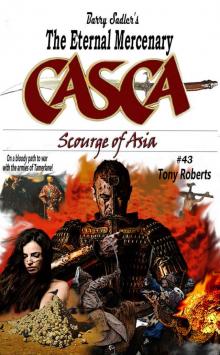 Casca 43: Scourge of Asia
Casca 43: Scourge of Asia The Lombard
The Lombard Casca 49: The Lombard
Casca 49: The Lombard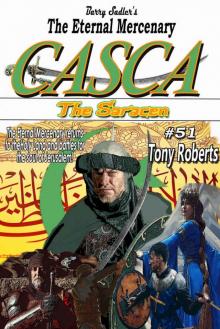 The Saracen
The Saracen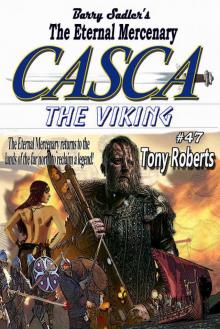 Casca 47: The Viking
Casca 47: The Viking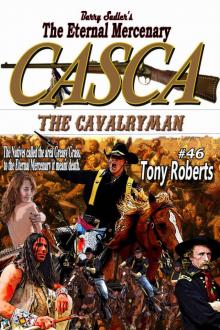 Casca 46: The Cavalryman
Casca 46: The Cavalryman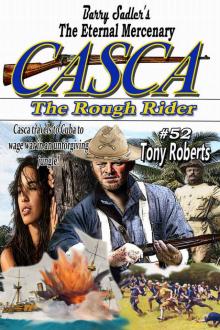 Casca 52- the Rough Rider
Casca 52- the Rough Rider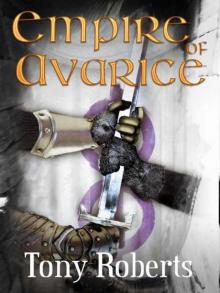 Empire of Avarice
Empire of Avarice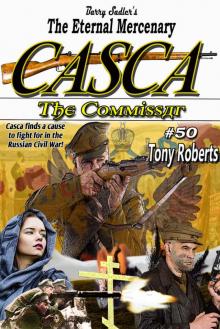 The Commissar
The Commissar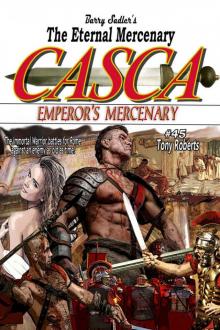 Casca 45: Emperor's Mercenary
Casca 45: Emperor's Mercenary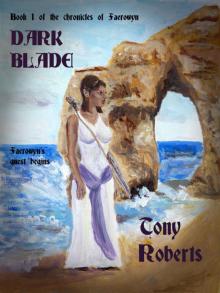 Dark Blade
Dark Blade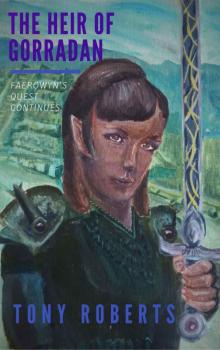 The Heir of Gorradan (Chronicles of Faerowyn Book 2)
The Heir of Gorradan (Chronicles of Faerowyn Book 2)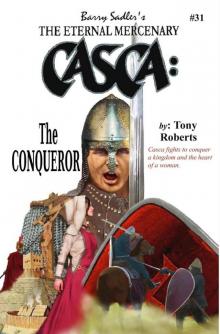 Casca 31: The Conqueror
Casca 31: The Conqueror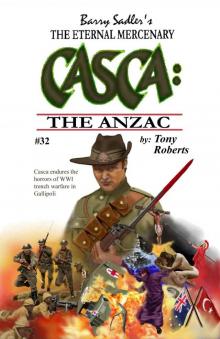 Casca 32: The Anzac
Casca 32: The Anzac The Anzac
The Anzac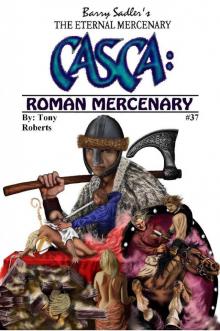 Casca 37: Roman Mercenary
Casca 37: Roman Mercenary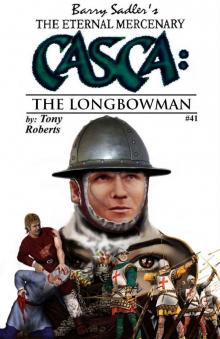 Casca 41: The Longbowman
Casca 41: The Longbowman The Longbowman
The Longbowman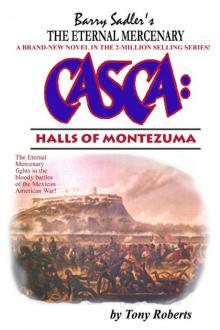 Casca 25: Halls of Montezuma
Casca 25: Halls of Montezuma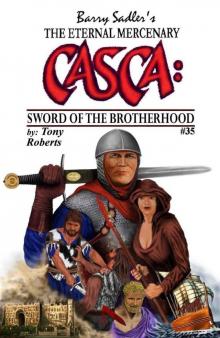 Sword of the Brotherhood
Sword of the Brotherhood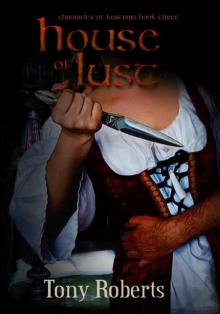 House of Lust
House of Lust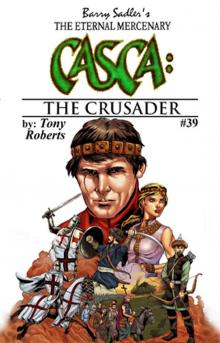 Casca 39 The Crusader
Casca 39 The Crusader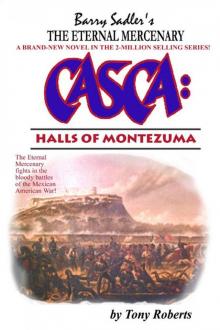 Halls of Montezuma
Halls of Montezuma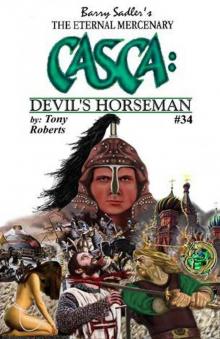 Devil's Horseman
Devil's Horseman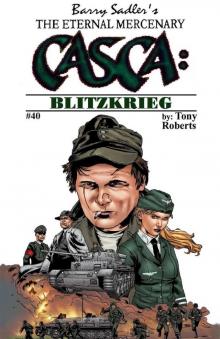 Casca 40: Blitzkrieg
Casca 40: Blitzkrieg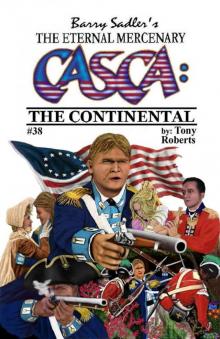 Casca 38: The Continental
Casca 38: The Continental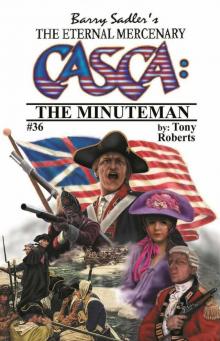 The Minuteman
The Minuteman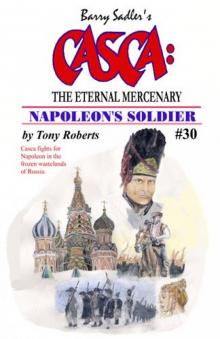 Napoleon's Soldier
Napoleon's Soldier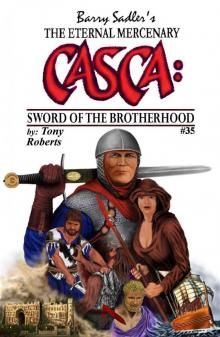 Casca 35: Sword of the Brotherhood
Casca 35: Sword of the Brotherhood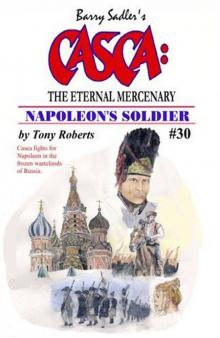 Casca 30: Napoleon's Soldier
Casca 30: Napoleon's Soldier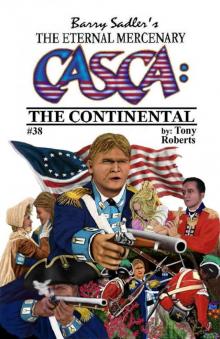 The Continental
The Continental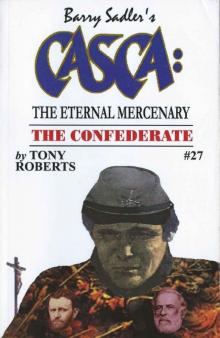 The Confederate
The Confederate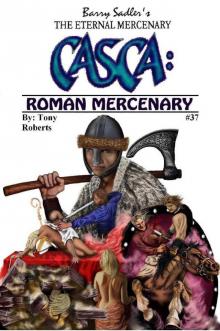 Roman Mercenary
Roman Mercenary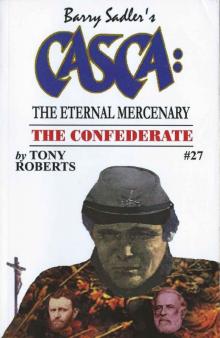 Casca 27: The Confederate
Casca 27: The Confederate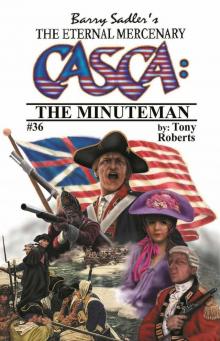 Casca 36: The Minuteman
Casca 36: The Minuteman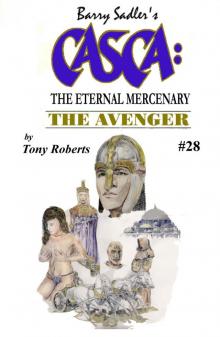 Casca 28: The Avenger
Casca 28: The Avenger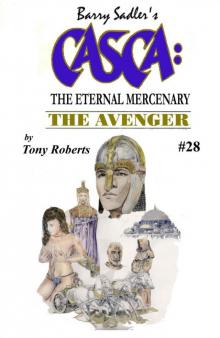 The Avenger
The Avenger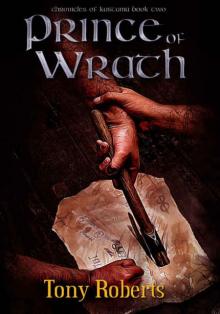 Prince of Wrath
Prince of Wrath